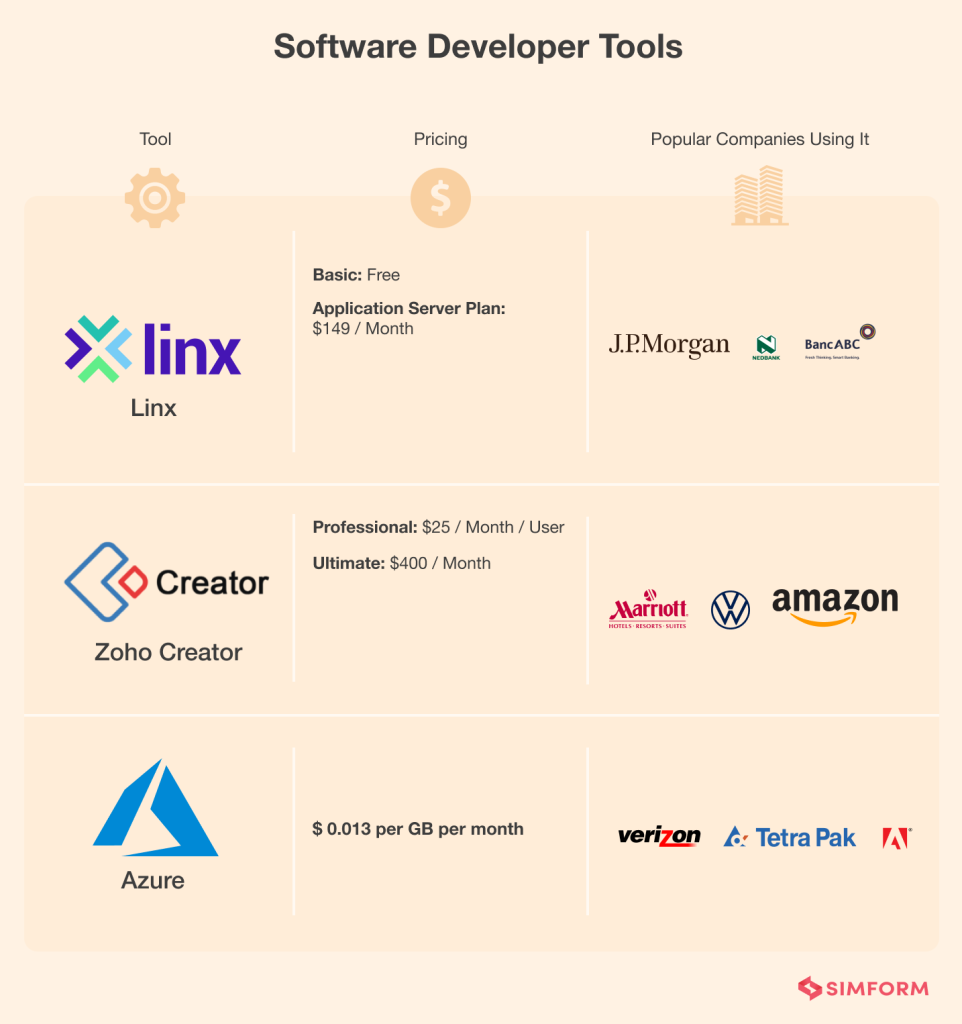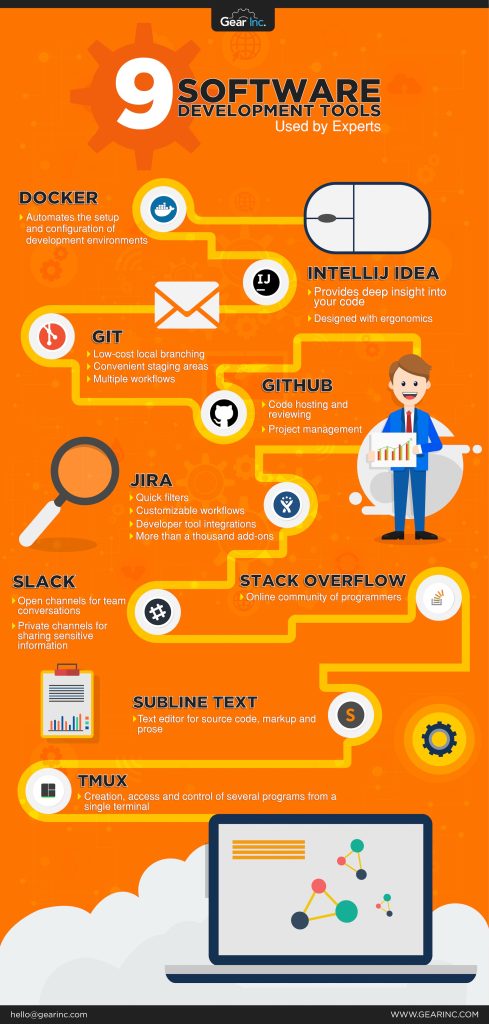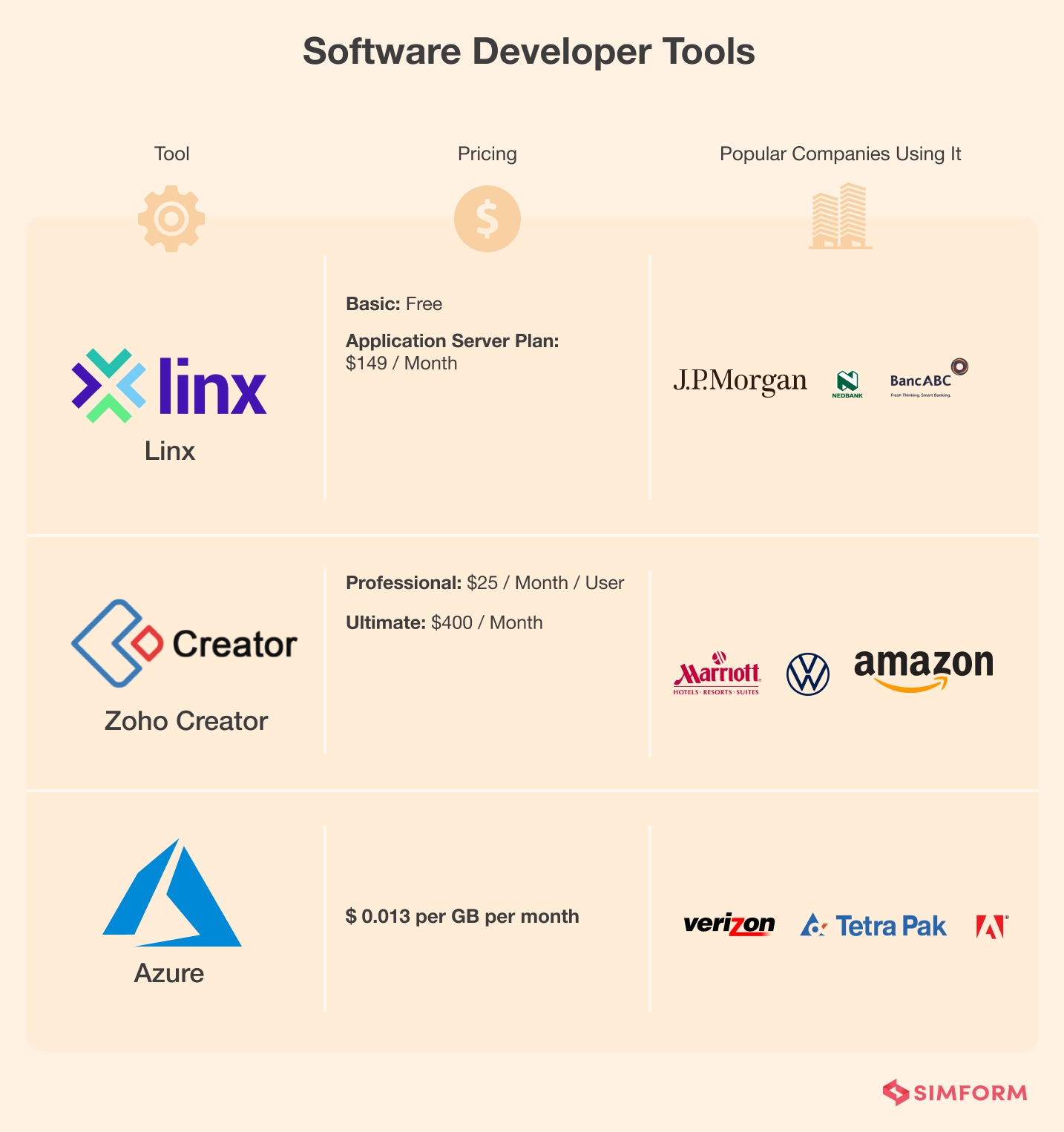So, you’ve always been fascinated by the world of software development, and you’re eager to understand what tools these tech wizards rely on to bring their creations to life. Well, you’re in luck because this article is all about uncovering the secret behind the scenes: the tools that software developers swear by. From powerful IDEs to version control systems, we’ll explore the essential tools that make a developer’s life a whole lot easier. Don’t worry, you don’t need to be a coding expert to appreciate the value of these tools, but by the end of this article, you’ll gain a newfound appreciation for the tools that power the digital world we live in. When it comes to software development, there are a plethora of tools available to professionals to enhance their productivity and ease the development process. From integrated development environments (IDEs) to project management tools, the right tool can make a significant difference in a developer’s workflow. In this article, we will explore various categories of development tools and delve into the essential tools in each category.

This image is property of careerkarma.com.
Development Environments
Integrated Development Environment (IDE)
An IDE is a software application that provides a comprehensive development environment by integrating essential tools into a single platform. IDEs typically come equipped with features like code editors, compilers, code completion, and debugging capabilities. They streamline the development process by providing a cohesive and efficient interface for writing, testing, and debugging code. Popular IDEs include Visual Studio, IntelliJ IDEA, and Eclipse.
Text Editors
Text editors are simpler alternatives to IDEs that are focused solely on editing code. They provide a lightweight and minimalistic environment for developers to write and manage their code efficiently. While text editors lack some of the advanced features of IDEs, they are highly customizable and can be tailored to suit the individual’s preferences. Some widely used text editors include Sublime Text, Atom, and Visual Studio Code.
Command Line
The command line is a powerful tool that allows developers to interact with their computer’s operating system using text-based commands. It provides a command-line interface (CLI) that enables developers to execute various tasks quickly and efficiently. Command line tools are particularly useful for automating repetitive tasks, managing version control systems, and configuring development environments. Popular command line tools include Git, npm, and pip.
Version Control Systems
Version control systems (VCS) are essential tools that help developers manage changes to their codebase over time. They allow multiple developers to collaborate on a project, track changes, and handle conflicts seamlessly. VCS also provide the capability to revert to previous versions of the project if necessary. Git is the most widely used version control system, but other popular options include Mercurial and Subversion.
Code Review Tools
Code review is a crucial aspect of software development that ensures the quality, maintainability, and correctness of code. Code review tools facilitate the process of reviewing code by providing features like code annotations, inline comments, and automated checks. These tools help teams collaborate effectively and ensure that code follows best practices and meets project requirements. Some popular code review tools include GitHub, Gerrit, and Crucible.
Project Management
Task Trackers
Task trackers are tools that help developers and teams manage their tasks and keep track of progress. They provide a centralized platform to create, assign, and monitor tasks, ensuring that everyone is on the same page and deadlines are met. Task trackers often include features like task prioritization, progress tracking, and notifications. Popular task trackers include Jira, Trello, and Asana.
Project Management Tools
Project management tools provide a comprehensive solution for planning, coordinating, and tracking development projects. They offer features like project scheduling, resource management, and collaboration tools to ensure that projects are executed smoothly, on time, and within budget. Project management tools often integrate with other development tools, such as task trackers and version control systems, to provide a seamless workflow. Notable project management tools include Monday.com, Microsoft Project, and Basecamp.
Documentation
Documentation Generators
Documentation is a vital aspect of software development that ensures clarity, readability, and maintainability of code. Documentation generators automate the process of generating documentation from code, simplifying the effort required to create and update documentation. These tools parse code comments and generate structured documentation in various formats, such as HTML or markdown. Popular documentation generators include Javadoc, Sphinx, and Doxygen.
Issue Trackers
Issue trackers, also known as bug trackers, are tools that help teams track and manage software issues, such as bugs, feature requests, or improvements. They provide a centralized platform for documenting, prioritizing, and resolving issues, ensuring that the development process remains organized and efficient. Issue trackers often integrate with other development tools, such as version control systems, to facilitate seamless issue resolution. Popular issue trackers include Jira, GitHub Issues, and Bugzilla.
Testing and Debugging
Unit Testing Frameworks
Unit testing frameworks are tools that enable developers to write and execute tests on their code to ensure its correctness and reliability. These frameworks provide a structured approach to writing tests and allow for automated testing, making it easier to identify bugs and ensure that code changes do not introduce new issues. Popular unit testing frameworks include JUnit, NUnit, and PyTest.
Automated Testing Tools
Automated testing tools go beyond unit testing to encompass more extensive testing scenarios, such as integration testing, functional testing, and performance testing. These tools automate the execution of test cases, saving time and effort during the testing process. They often include features like test case management, test script generation, and test result reporting. Popular automated testing tools include Selenium, JMeter, and TestComplete.
Debuggers
Debuggers are essential tools for developers to identify and resolve issues in their code. They allow developers to step through code execution, inspect variables, and analyze program flow to understand how code behaves at runtime. Debuggers are particularly useful for diagnosing and fixing complex bugs, as they provide a detailed view of the code’s execution path. Popular debuggers include Visual Studio Debugger, GDB, and LLDB.
Profiling Tools
Profiling tools enable developers to analyze the performance of their code and identify potential bottlenecks or areas for optimization. These tools measure and record various runtime metrics, such as CPU usage, memory consumption, and execution time, to help developers understand how the code performs under different conditions. Profiling tools are invaluable for optimizing code and improving application performance. Popular profiling tools include VisualVM, Xcode Instruments, and Chrome DevTools.

This image is property of www.simform.com.
Collaboration
Collaboration Platforms
Collaboration platforms provide a central hub for team communication, file sharing, and collaborative work. These platforms often feature real-time messaging, video conferencing, and document collaboration tools to facilitate seamless communication and collaboration among team members, regardless of their physical location. Popular collaboration platforms include Slack, Microsoft Teams, and Google Workspace.
Communication Tools
Communication tools specifically cater to enabling effective communication among team members. They often include features like instant messaging, voice and video calls, and screen sharing capabilities. Communication tools ensure that team members can easily reach out to each other, discuss project updates, and resolve any issues or concerns promptly. Popular communication tools include Slack, Microsoft Teams, and Zoom.
Deployment and Operations
Configuration Management Tools
Configuration management tools automate the deployment and management of software configurations across different environments. These tools enable developers to define and track system configurations, ensuring consistency and reproducibility when deploying applications. Configuration management tools often integrate with version control systems and deployment platforms to provide a seamless workflow. Popular configuration management tools include Ansible, Chef, and Puppet.
Continuous Integration/Continuous Deployment (CI/CD) Tools
Continuous integration/continuous deployment (CI/CD) tools automate the process of building, testing, and deploying code changes to production environments. They ensure that code changes are thoroughly tested and verified before being deployed, reducing the risk of introducing bugs or breaking existing functionality. CI/CD tools often integrate with version control systems and provide extensive reporting and monitoring capabilities. Noteworthy CI/CD tools include Jenkins, GitLab CI/CD, and CircleCI.
Infrastructure as Code (IaC) Tools
Infrastructure as code (IaC) tools enable developers to define and manage their infrastructure using code. These tools treat infrastructure components, such as servers and networks, as programmable resources, allowing developers to version, test, and deploy infrastructure changes alongside their code changes. IaC tools often integrate with cloud service providers, making it easier to provision and manage resources. Popular IaC tools include Terraform, AWS CloudFormation, and Google Cloud Deployment Manager.
Monitoring and Logging Tools
Monitoring and logging tools help developers track the health, performance, and availability of their applications in real-time. These tools provide insights into system metrics, logs, and error tracking, allowing developers to identify and resolve issues promptly. Monitoring and logging tools often integrate with deployment platforms and alert developers of any anomalies or critical issues. Popular monitoring and logging tools include Prometheus, ELK Stack, and Datadog.

This image is property of www.devprojournal.com.
Security
Static Code Analysis Tools
Static code analysis tools analyze source code without executing it to identify potential security vulnerabilities, coding errors, and performance issues. These tools scan codebases for known patterns and provide recommendations for improvements, ensuring that code is written securely and follows best practices. Static code analysis tools significantly enhance the security and quality of software applications. Popular static code analysis tools include SonarQube, ESLint, and Fortify.
Security Testing Tools
Security testing tools enable developers to test their applications and identify potential security vulnerabilities and weaknesses. These tools simulate attacks and assess the resilience of the application against common security threats. Security testing tools range from vulnerability scanners to penetration testing frameworks and help ensure that applications are secure and protected from potential exploits. Popular security testing tools include OWASP ZAP, Nessus, and Burp Suite.
Performance Optimization
Performance Profilers
Performance profilers help developers analyze the runtime behavior and performance of their applications. These tools monitor CPU usage, memory allocation, and other relevant metrics to identify performance bottlenecks and areas for optimization. Performance profilers assist developers in optimizing their code to improve efficiency and enhance application performance. Notable performance profilers include VisualVM, Xcode Instruments, and JetBrains dotTrace.
Load Testing Tools
Load testing tools simulate high user loads to evaluate how an application performs under stress. These tools apply artificial loads to test the system’s response time, scalability, and reliability. Load testing tools help ensure that applications can handle expected user traffic and identify potential bottlenecks or performance issues. Popular load testing tools include Apache JMeter, LoadRunner, and Gatling.

This image is property of wcs.smartdraw.com.
Package Management
Package Managers
Package managers are tools that simplify the management and installation of libraries, dependencies, and software packages within a project. They automate the process of resolving and retrieving required packages, ensuring that the project’s dependencies are correctly managed and consistently applied. Package managers greatly facilitate the development process by handling dependency resolution and version control. Popular package managers include npm, pip, and Maven.
Miscellaneous
Code Editors
While similar to text editors, code editors provide additional features and functionality tailored specifically for coding tasks. These editors often include code completion, syntax highlighting, and other language-specific tools. Code editors enhance developer productivity by providing an optimized environment for writing and managing code efficiently. Popular code editors include Sublime Text, Atom, and Visual Studio Code.
Code Linters
Code linters are tools that analyze code for potential errors, code style violations, and other issues that may impact code quality. Linters enforce code consistency and adherence to best practices, ensuring that code is clean, maintainable, and free from common mistakes. Code linters often integrate with code editors or IDEs to provide real-time feedback while writing code. Popular code linters include ESLint, Pylint, and RuboCop.
Database Tools
Database tools assist developers in managing and interacting with databases efficiently. They provide interfaces for creating, modifying, and querying databases, making it easier to design and maintain data structures. Database tools often support multiple database management systems (DBMS) and facilitate tasks such as data modeling, schema management, and data manipulation. Noteworthy database tools include MySQL Workbench, pgAdmin, and MongoDB Compass.
API Development Tools
API development tools are specifically designed to assist developers in designing, testing, and documenting application programming interfaces (APIs). These tools provide features for defining API specifications, generating client libraries or server stubs, and testing API endpoints for compliance and functionality. API development tools help developers ensure that APIs are well-documented, robust, and meet requirements. Popular API development tools include Swagger, Postman, and Apigee.
In conclusion, software developers have a vast array of tools at their disposal to streamline their workflows and enhance productivity. From development environments to collaboration platforms and security testing tools, the right combination of tools can significantly impact the efficiency and quality of the development process. By leveraging the appropriate tools for each stage of the development lifecycle, developers can ensure that their projects are well-managed, thoroughly tested, and consistently delivered with speed and precision.

This image is property of elearninginfographics.com.
